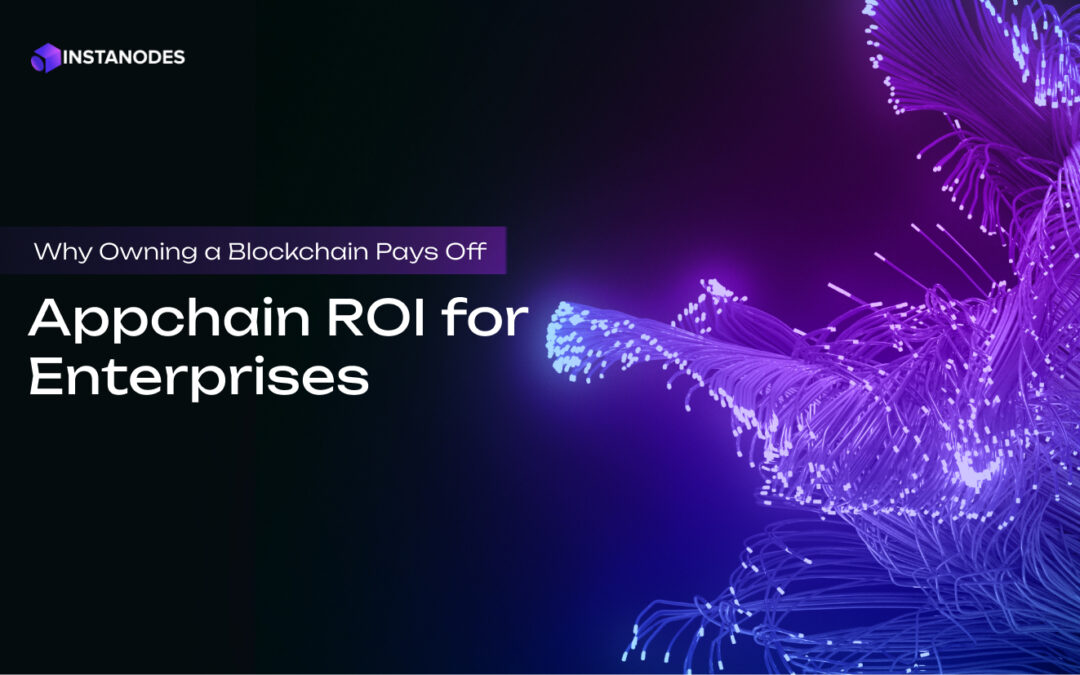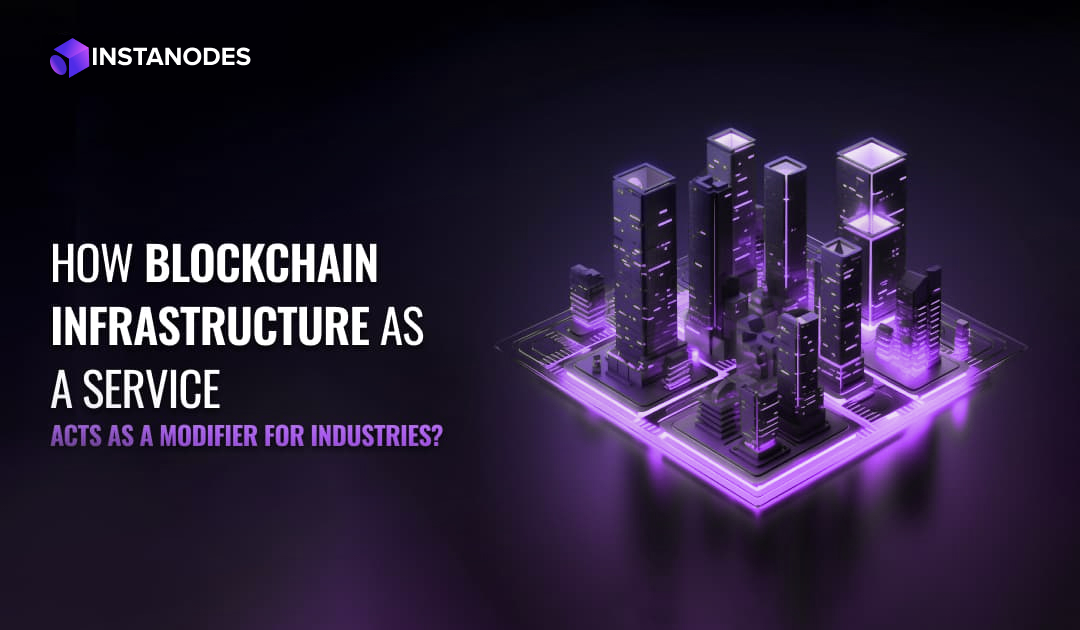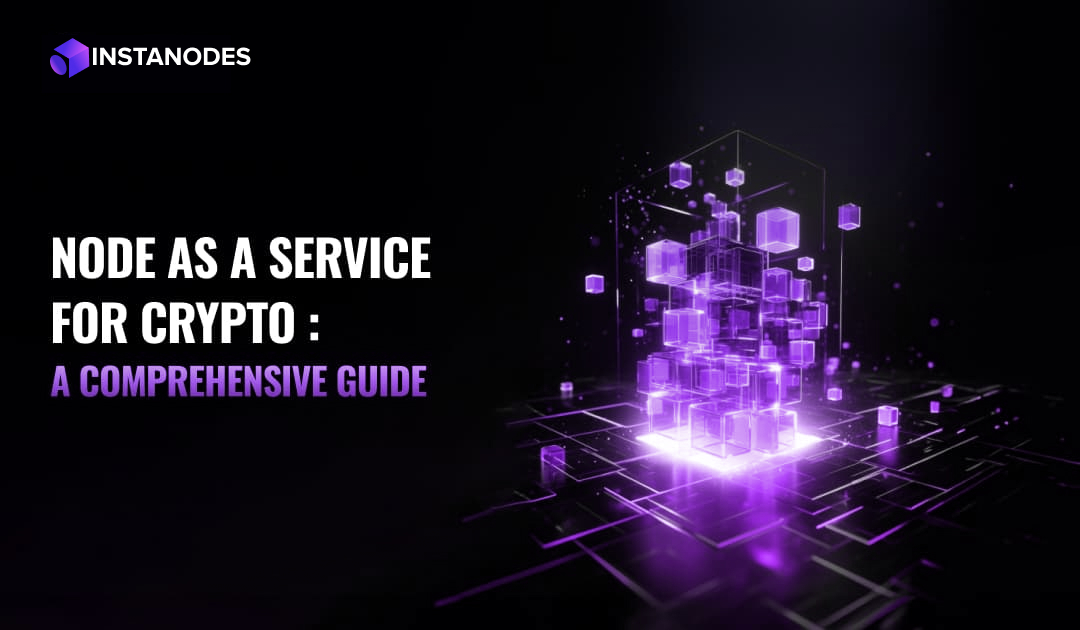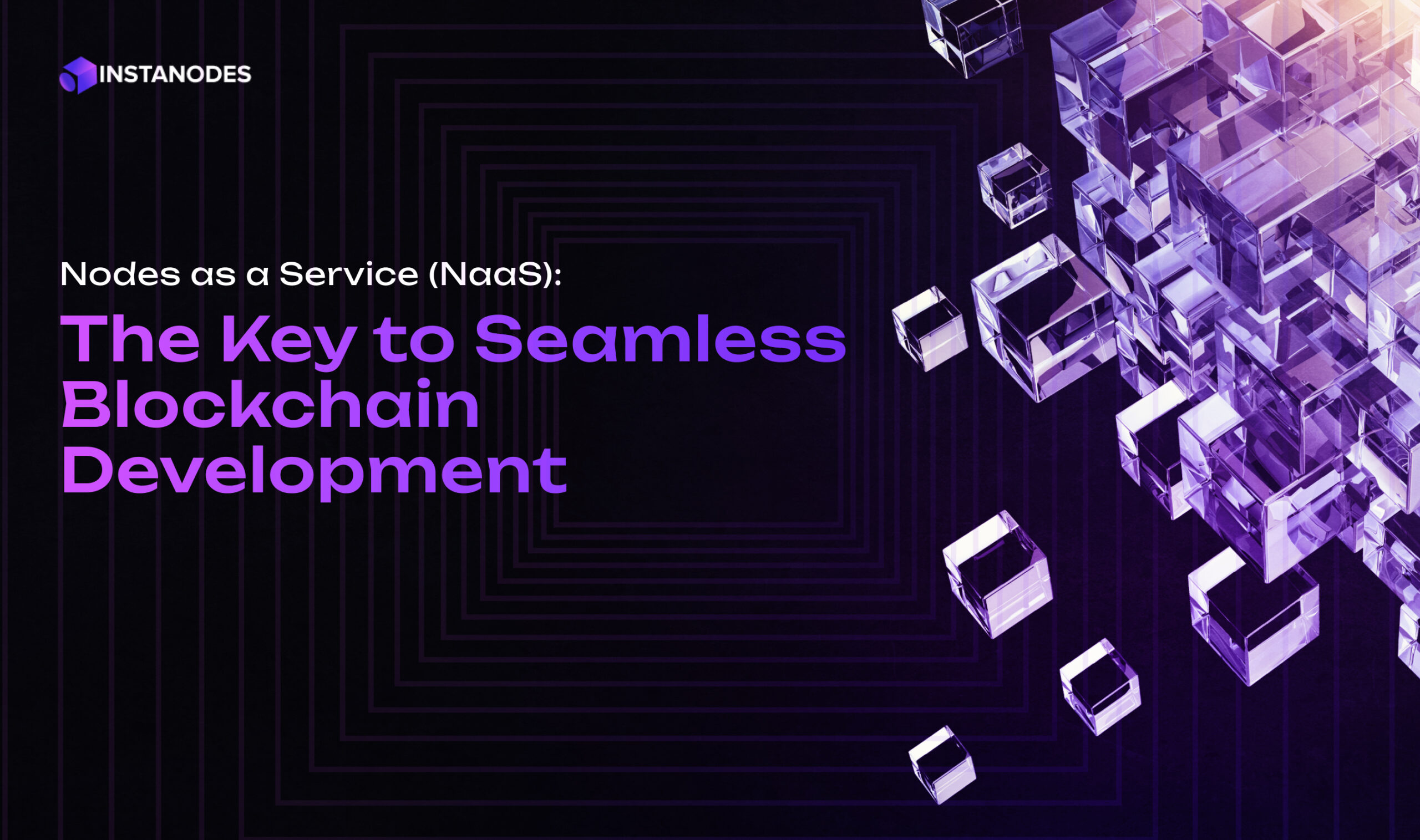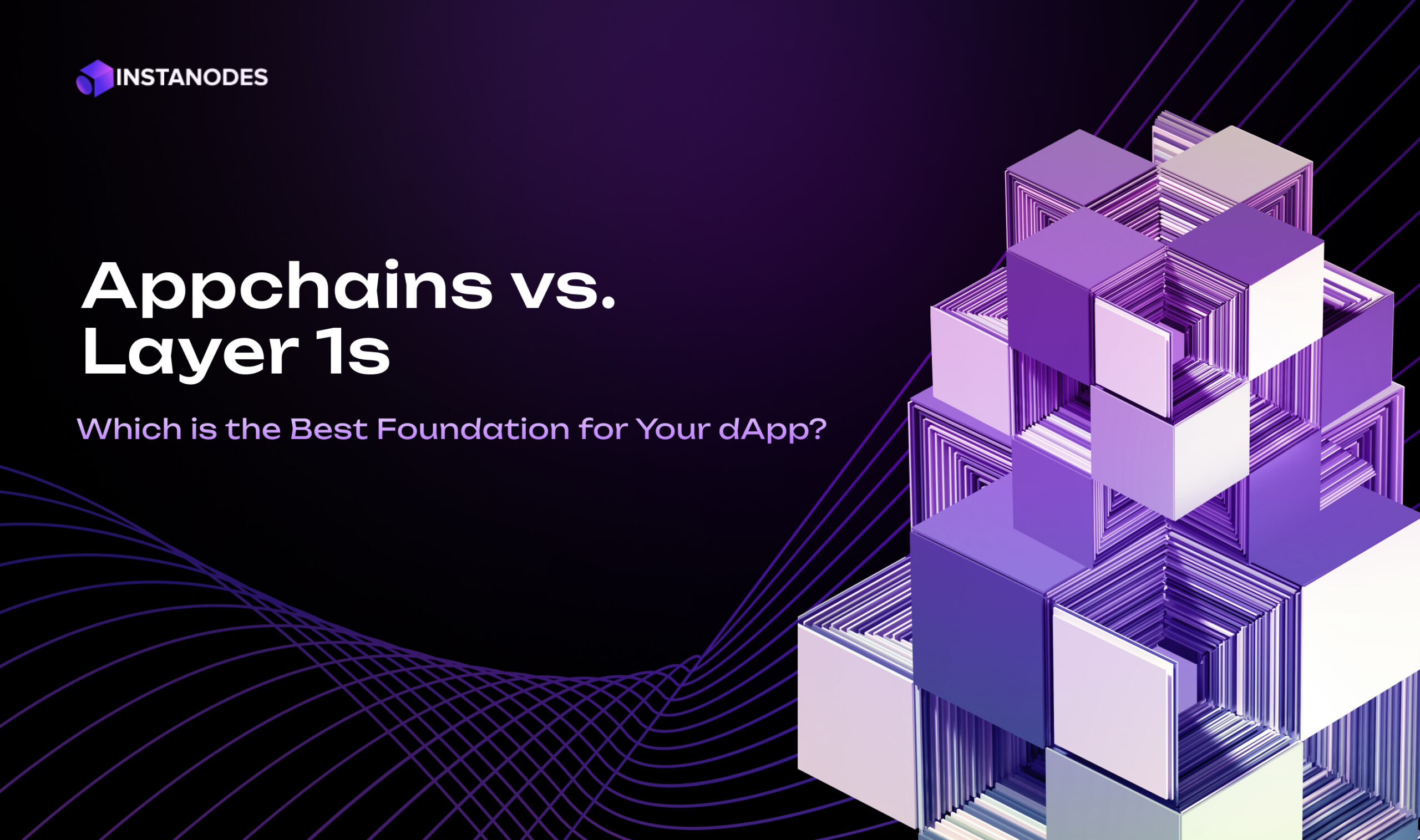When most people hear the word blockchain, they envision Bitcoin or cryptocurrency trading. But savvy businesses are looking deeper and finding something much more valuable: appchains. These specialized blockchain networks are revolutionizing the way businesses work, taking blockchain from a speculative to a pragmatic infrastructure that provides tangible returns.
Consider it in the following way: sharing a public blockchain is akin to attempting to operate your business operations via a busy public highway. You’re fighting over space, navigating unpredictable traffic, and paying tolls that fluctuate with demand. Appchain crypto is like having your own exclusive highway system, tailored specifically for your business requirements.
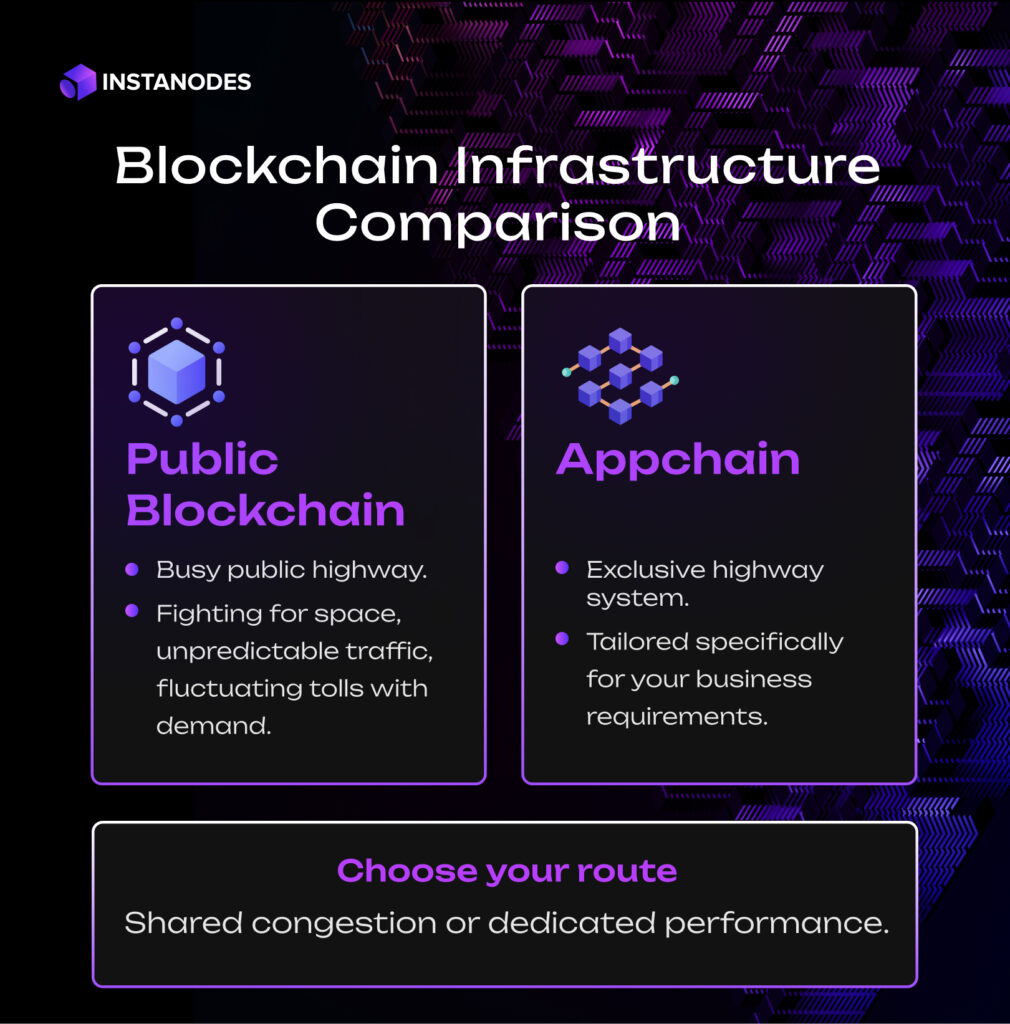
The statistics speak for themselves. Businesses using dedicated appchains are realizing 30-40% cost savings in operations, 100x speed improvements compared to public networks, and new revenue opportunities they never imagined. More significantly, they’re establishing competitive advantages that amplify over time, building business moats that strengthen as their blockchain ecosystems expand.
Cost Analysis: Traditional Infrastructure vs. Dedicated Appchain Solutions
The financial case for appchains becomes compelling when enterprises conduct thorough cost-benefit analyses comparing traditional infrastructure investments with dedicated blockchain solutions. Here’s what the numbers reveal:
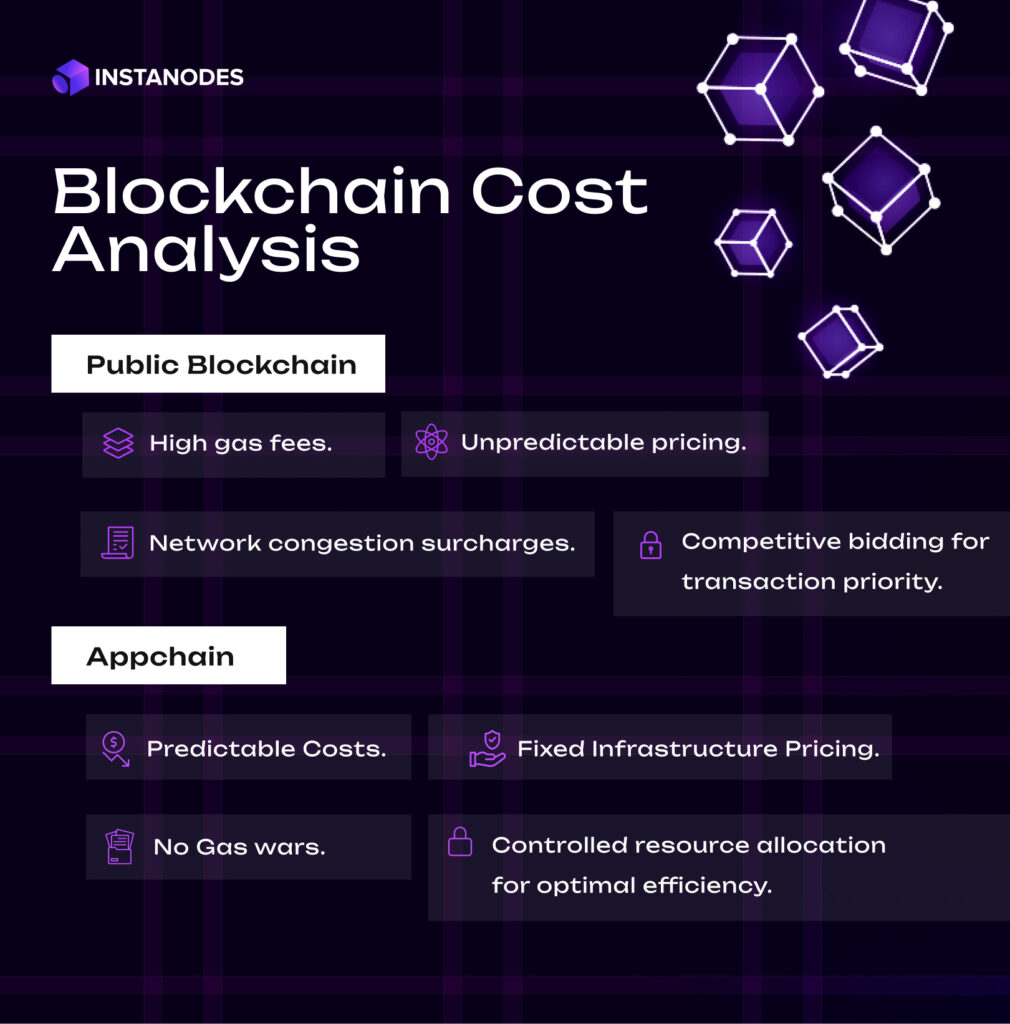
Traditional Infrastructure Costs
- Upfront capital expenditure: Ranging from thousands to millions for servers, networking, and security systems.
- Annual maintenance: 15-20% of total IT budget.
- Hardware upgrades: Every 3-5 years, requiring significant reinvestment.
- Technical support: Thousands of dollars annually for enterprise-grade systems.
Appchain Investment Structure
- Initial development: May exceed $500K (one-time investment).
- Minimal ongoing maintenance through a distributed network architecture.
- Automatic scaling without additional hardware purchases.
- Predictable operational costs regardless of transaction volume.
The transaction cost advantages of owning a dedicated appchain crypto becomes particularly evident in high-volume enterprise environments. Public blockchain networks make gas payments that oscillate wildly depending on network traffic, resulting in unanticipated operational expenses. Transaction fees during heavy usage times on networks such as Ethereum have reached over $50 per transaction, a cost that is prohibitively high for day-to-day business operations.
Key Cost Savings with Appchains
- Stable transaction fees regardless of network congestion.
- Elimination of third-party gas fee volatility.
- Reduced compliance costs through automated audit trails.
- 30-40% reduction in audit expenses through built-in transparency.
Enterprise-grade application specific blockchain eliminates these variable costs by providing predictable, often significantly lower transaction fees that remain stable regardless of external network conditions. Appchain crypto solutions automate many compliance processes through smart contracts and provide auditors with direct access to tamper-proof transaction histories, reducing audit costs while improving accuracy and reducing compliance risks.
Custom Appchains for High-Performance Enterprises
Reduce costs and improve performance with custom-built enterprise appchain infrastructure.
Scalability and Performance Gains: How Enterprise Appchains Eliminate Network Congestion
Network congestion represents one of the most significant limitations of shared blockchain networks, directly impacting enterprise operations through delayed transactions, increased costs, and unpredictable performance. The performance gap is dramatic:
Public Blockchain Limitations:
- Bitcoin: 7 transactions per second.
- Ethereum: 15 transactions per second.
- Unpredictable confirmation times (minutes to hours during peak usage).
- Performance variations based on external market conditions.
- Network availability depends on factors beyond enterprise control.
Appchain Performance Advantages:
- Transaction speeds: 10,000+ transactions per second.
- Consistent confirmation times regardless of external factors.
- Custom consensus mechanisms optimized for business needs.
- Predictable network availability with enterprise-grade uptime.
- Performance scaling through dedicated resources.
Appchains solve scalability challenges by providing dedicated network resources optimized for specific enterprise use cases. Without competing with external users for network resources, enterprises can achieve transaction throughput rates that rival traditional centralized databases while maintaining blockchain’s security and transparency benefits.
Technical Benefits:
- Near-instantaneous transaction finality with optimized consensus.
- Custom governance models aligned with business requirements.
- Organic scaling through network effects as operations expand.
- Elimination of external dependencies that cause performance bottlenecks.
The advantages of performance extend beyond mere transaction speed to include dependable confirmation times and consistent network availability.
During periods of high demand on public networks, transaction confirmation times can range from minutes to hours, hindering time-sensitive business operations. Appchains maintain a consistent level of performance at all times, regardless of external network conditions, ensuring the reliable operation of essential business processes.
Enterprise appchains allow enterprise-specific consensus algorithms to be implemented. For instance, enterprises that are more focused on transaction speed than maximum decentralization can use practical Byzantine fault tolerance consensus to achieve maximum performance with sufficient security for business processes.
Public Blockchain Vs Appchain: Scalability & Security Analysis
Public Blockchain: Limited throughput with network congestion vs. high security through global consensus.
Appchain: Unlimited scalability with dedicated resources vs. custom security models with tailored protection.
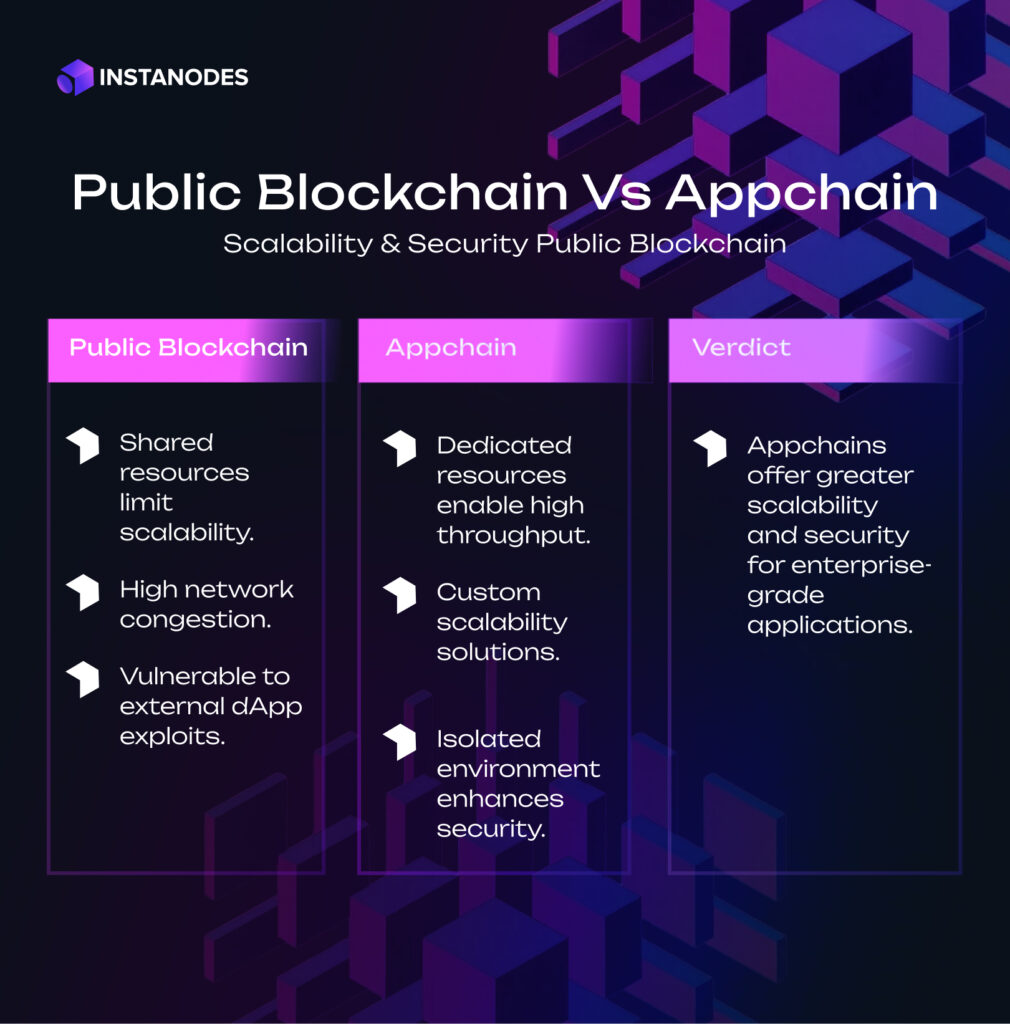
Enhanced Security and Compliance: Risk Mitigation Through Blockchain Ownership
Security and compliance are key considerations for enterprise blockchain adoption, with application specific blockchains having a better risk mitigation advantage than shared networks. The control benefit is significant:
Public Blockchain Security Risks:
- Exposure to external network attacks beyond enterprise control.
- Vulnerability to smart contract exploits from other users.
- Governance decisions that may conflict with enterprise requirements.
- Dependency on external validators and developers for security.
Appchain Security Advantages:
- Complete control over security protocols and access permissions.
- Custom encryption protocols tailored to regulatory requirements.
- Multi-signature authentication and role-based access controls.
- Enterprise-grade security measures aligned with risk tolerance.
Owning a dedicated appchain crypto provides enterprises with complete control over network governance, enabling implementation of security measures that align perfectly with compliance obligations. Unlike public networks, where security depends on external factors, appchain owners ensure security protocols meet their exact specifications.
Regulatory Compliance Benefits:
- Built-in compliance measures are integrated into the blockchain protocol.
- Automatic adherence to GDPR, HIPAA, and SOX requirements.
- Data sovereignty controls for multinational operations.
- Geographic data boundaries to satisfy international regulations.
The immutable audit trail provided by appchains creates substantial value for compliance and risk management programs. Traditional enterprise systems rely on complex logging systems that can be corrupted or manipulated.
Audit and Compliance Improvements:
- Permanent, tamper-proof transaction records.
- Automated compliance reporting through smart contracts.
- Direct auditor access to verified transaction histories.
- Significant reduction in compliance preparation time and costs.
Public blockchains are problematic for industries like healthcare, finance, and government due to stringent regulations that are hard to meet. With Appchains, businesses can integrate compliance controls directly into the blockchain protocol, so all transactions will automatically meet applicable regulations without compromising operational efficiency.
Revenue Generation Opportunities: Monetizing Your Enterprise Appchain Ecosystem
Beyond operational improvements, appchains create direct revenue generation opportunities that can significantly impact enterprise profitability. The monetization potential is diverse and scalable:
Direct Revenue Streams:
- Asset tokenization: Convert physical and digital assets into tradeable tokens.
- Utility tokens: Create native currencies for ecosystem transactions.
- Platform access fees: Monetize network participation for partners.
- Transaction fees: Generate ongoing revenue from ecosystem activity.
The most immediate revenue opportunity comes from the tokenization of business processes, assets, or services. Enterprises can create native tokens representing everything from loyalty points and supply chain assets to intellectual property and service credits, creating new revenue streams while improving customer engagement.
Tokenization Opportunities:
- Carbon credits and sustainability certifications.
- Equipment usage rights and service warranties.
- Intellectual property licenses and digital rights.
- Supply chain verification and quality assurance tokens.
Appchain crypto tokens serve as utility tokens within enterprise ecosystems, enabling more efficient value exchange between business partners, suppliers, and customers. For example, a manufacturing company could issue tokens representing various business assets, creating tradeable commodities that generate ongoing revenue while improving transparency.
Platform Monetization:
- Network effects as the ecosystem grows and attracts new participants.
- Revenue sharing agreements with ecosystem partners.
- Premium services and advanced feature access.
- Data insights and analytics services for network participants.
The platform effect represents another significant revenue opportunity as enterprises expand their appchain ecosystems. Successful enterprise appchains often evolve into platforms that other businesses want to join, creating network effects that increase the value of the entire ecosystem.
Data Monetization:
- Verified business intelligence and market insights.
- Anonymized operational data for industry analysis.
- Compliance reporting services for regulatory bodies.
- Benchmarking data for industry participants.
Automation of smart contracts creates cost savings that results in enhanced profitability. By automating day-to-day business activities, such as payments, contract signing, and compliance reporting, businesses reduce operational expenses while enhancing accuracy and speed, thereby gaining significant cost-based advantages in cost-sensitive markets.
Scale Smart with Future-Driven Appchain Tech
Future-proof your operations with appchains engineered for business transformation.
Schedule a Consultation
Long-term Strategic Value: Building Competitive Advantages with Proprietary Blockchain Infrastructure
The long-term strategic benefit of appchain ownership goes far beyond short-term operational enhancements to include essential competitive positioning in a more digital economy. The strategic benefits accrue over time:
Competitive Positioning Benefits:
- First-mover advantage in blockchain-enabled business models.
- Proprietary ecosystems that increase customer switching costs.
- Network effects that strengthen competitive moats over time.
- Innovation velocity through dedicated infrastructure control.
Enterprises that invest early in proprietary blockchain infrastructure position themselves as industry leaders while creating significant barriers to entry for competitors. As partners, suppliers, and customers integrate with enterprise appchain systems, they become more deeply embedded in the value network, making it costly and complex to switch to competitors.
Data and Intelligence Advantages:
- Comprehensive, trustworthy datasets for advanced analytics.
- AI and machine learning capabilities powered by verified data.
- Predictive insights unavailable to competitors using traditional systems.
- Strategic planning based on transparent, immutable business intelligence.
The information and intelligence produced by appchain activities form compound value in the form of enhanced decision-making and strategic planning functions. In contrast to conventional systems where data is potentially siloed or hard to corroborate, appchains produce expansive, reliable datasets that facilitate more advanced analytics and artificial intelligence uses.
Innovation and Agility Benefits:
- Rapid prototyping of new business models without external dependencies.
- Quick deployment of partnerships and services.
- Adapt to market changes faster than competitors.
- Integration of emerging blockchain technologies as they develop.
Innovation velocity represents another crucial long-term advantage of appchain ownership. Enterprises with proprietary blockchain infrastructure can rapidly prototype and deploy new business models, services, and partnerships without depending on external platform providers or dealing with technical limitations of shared networks.
Future-Proofing Advantages:
- Adaptability to technological evolution without infrastructure overhauls.
- Integration capabilities for emerging blockchain applications.
- Reduced dependence on legacy systems that become obsolete.
- Competitive advantages over enterprises stuck with traditional infrastructure.
Future-proofing business operations against technology disruption is more possible with appchain crypto infrastructure. As technology develops further and more applications are discovered, businesses with pre-existing appchain capabilities are able to evolve rapidly and incorporate new features, resulting in substantial competitive advantage over legacy system-driven or shared blockchain platform-dependent competitors.
Conclusion
The ROI for enterprise appchains spans several aspects of business value, from short-term cost savings and operating efficiencies to long-term strategic benefits and revenue opportunity. As the maturity of blockchain technology accelerates and enterprise blockchains surge, the question for visionary businesses is no longer whether to invest in blockchain, but how to optimize return through strategic appchain crypto adoption.
There are evidences that enterprises serious about blockchain appchain adoption achieve superior results as compared to those using shared networks. The combination of aspects like cost savings, performance benefits, security gains, revenue generation, and strategic alignment provides a powerful investment rationale that grows more compelling over time as network effects and ecosystem value accelerate.
Ready to explore how appchains can transform your enterprise operations? Contact Instanodes today to discuss your custom blockchain infrastructure needs. Our expert team can help you achieve measurable ROI through strategic appchain implementation.
